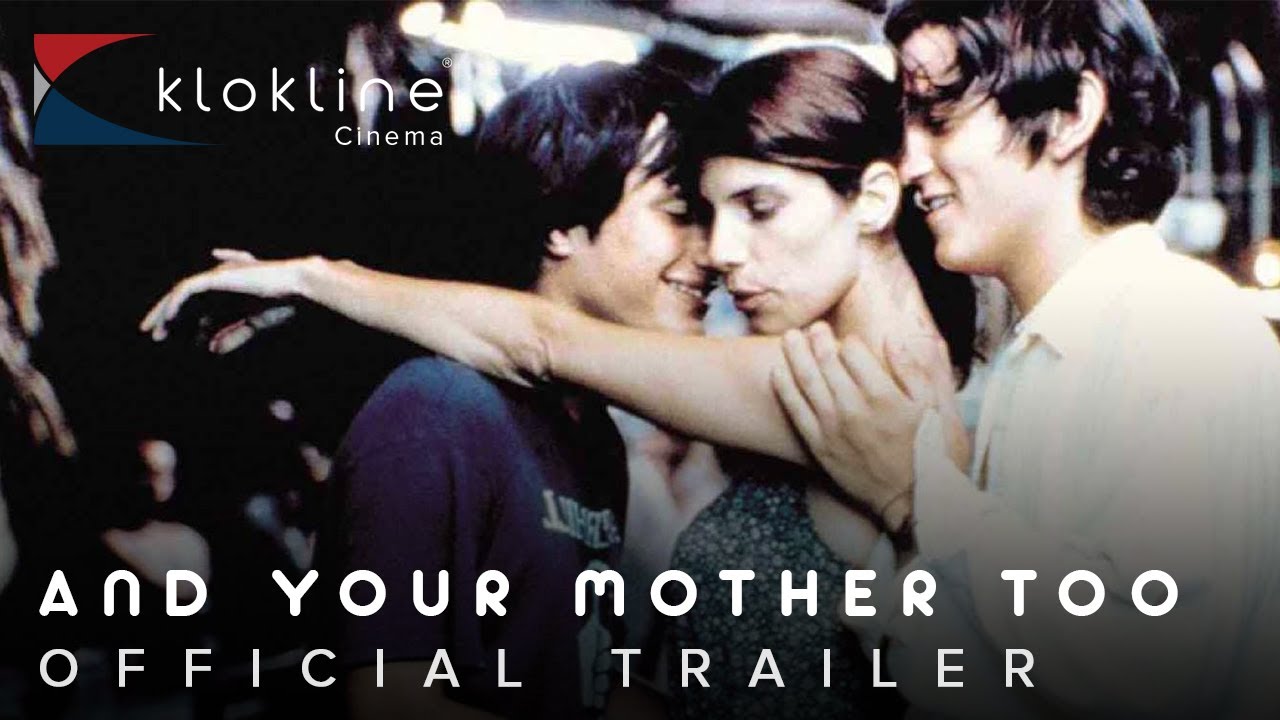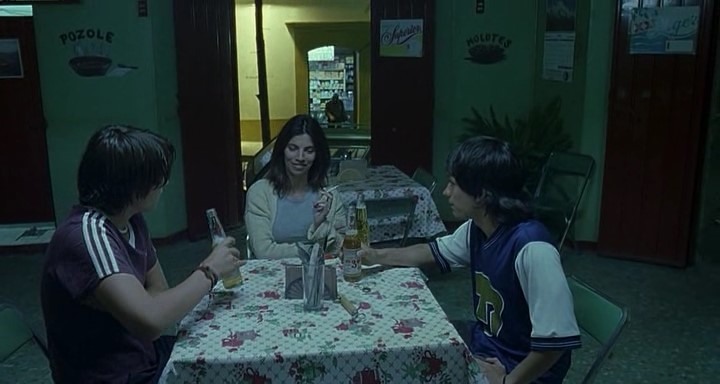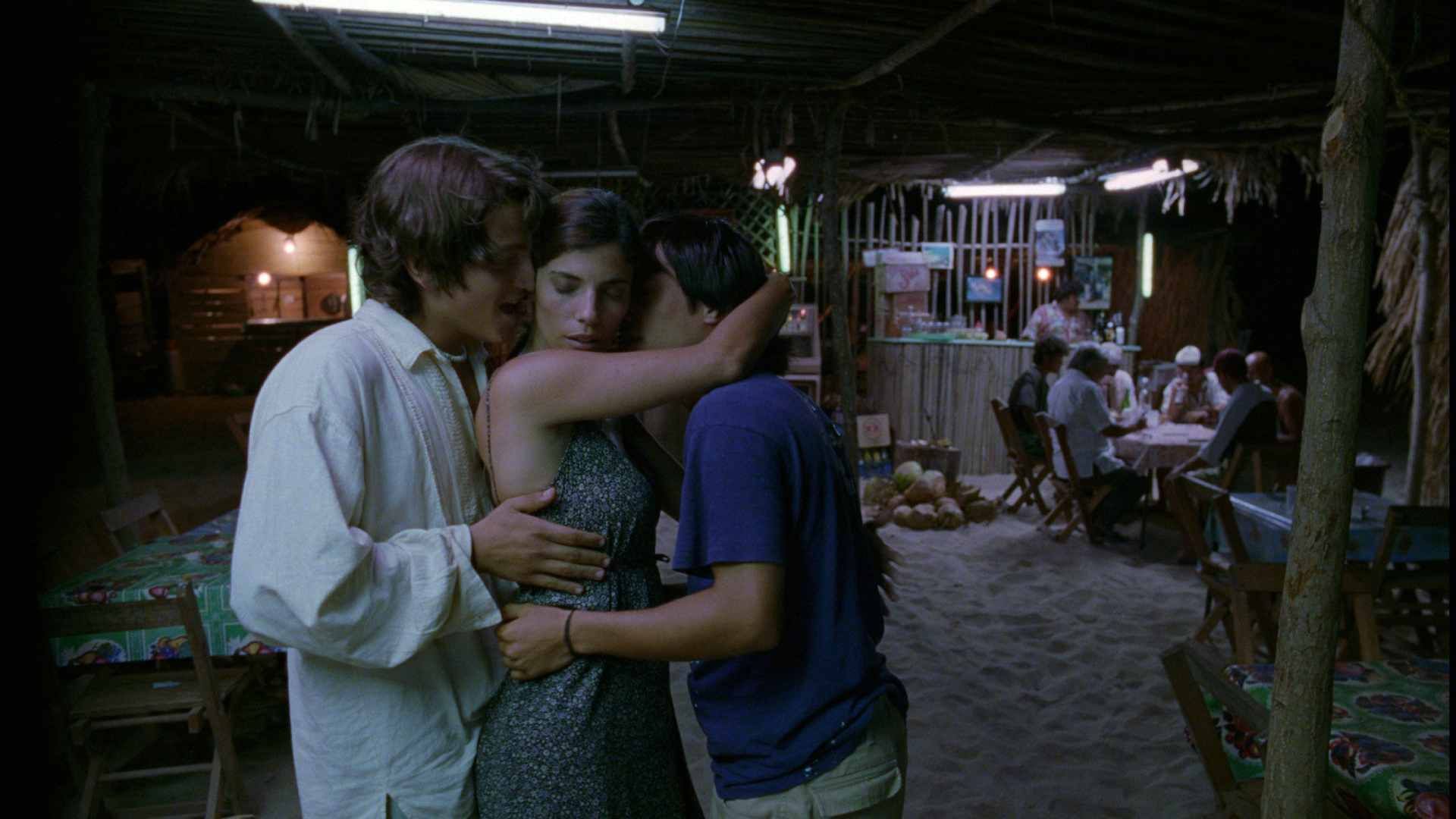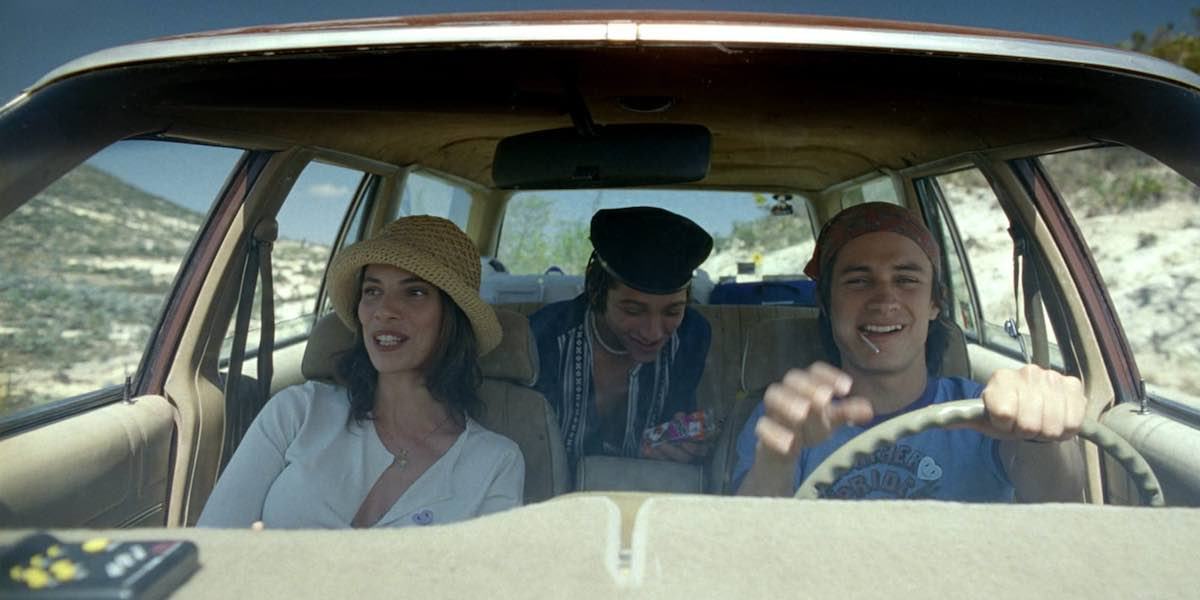And Your Mother Too (2001)

And Your Mother Too (2001) is a Mexican coming-of-age film directed by Alfonso Cuarón, who co-wrote the screenplay with his brother Carlos Cuarón. The film is a witty, poignant exploration of youth, sexuality, and the complexities of human relationships. Set against the backdrop of Mexico’s vibrant landscapes, the story follows two teenage boys, Julio and Tenoch, as they embark on a road trip with an older woman, Luisa, which leads them to confront their personal desires, emotional growth, and the realities of life.
The story begins with Julio (Gael García Bernal) and Tenoch (Diego Luna), two carefree teenagers from privileged families, who, after their girlfriends leave for the summer, are left without much to do. Their lives take a turn when they meet Luisa (Maribel Verdú), an older woman who is dealing with her own troubled relationships. As the boys attempt to charm her, Luisa agrees to join them on a road trip to a remote beach they claim to know. What begins as a carefree adventure soon becomes an exploration of deeper emotional and sexual territories for all three characters.
As the road trip progresses, the film explores the evolving relationships between Julio, Tenoch, and Luisa. For the two boys, it is a journey of self-discovery, as they navigate their sexual identities and feelings for each other, as well as for Luisa. The film’s candid portrayal of youthful sexuality and the tension between innocence and experience is both refreshing and thought-provoking. Julio and Tenoch’s competitive friendship becomes more complicated as they both fall for Luisa, resulting in a mix of jealousy, frustration, and emotional growth.
Luisa’s character adds another layer of depth to the narrative. Her relationship with the boys serves as a catalyst for her own personal exploration. She is dealing with the emotional fallout of her marriage and an affair, and her journey with the boys becomes a form of escape from her troubled past. As the film progresses, it becomes clear that the road trip serves as a means for all three characters to confront their desires, their relationships, and their understanding of themselves.

The cinematography in And Your Mother Too is visually striking, capturing the beauty and vastness of the Mexican landscape as the characters travel through diverse terrains. The natural setting mirrors the emotional journey of the characters, with open roads symbolizing the freedom and uncertainty of adolescence. Cuarón’s direction ensures that the landscape becomes a character in itself, further enhancing the film’s thematic exploration of exploration, growth, and self-discovery.

At its core, And Your Mother Too is not just a story about sexuality; it’s about friendship, loss, and the passage from youth to adulthood. The film deftly examines the way in which relationships can shape us, whether they are romantic, platonic, or somewhere in between. Julio and Tenoch’s friendship is tested and changed through their experiences with Luisa, and the film challenges the audience to reflect on how we navigate relationships and emotional intimacy at different stages of our lives.

In conclusion, And Your Mother Too is a bold, insightful, and humor-filled exploration of youth, desire, and personal growth. Alfonso Cuarón’s masterful direction and the strong performances of the cast create a film that is both entertaining and emotionally resonant. With its candid treatment of sexuality and its exploration of human connection, the film remains a powerful and relevant piece of cinema that continues to resonate with audiences worldwide.











